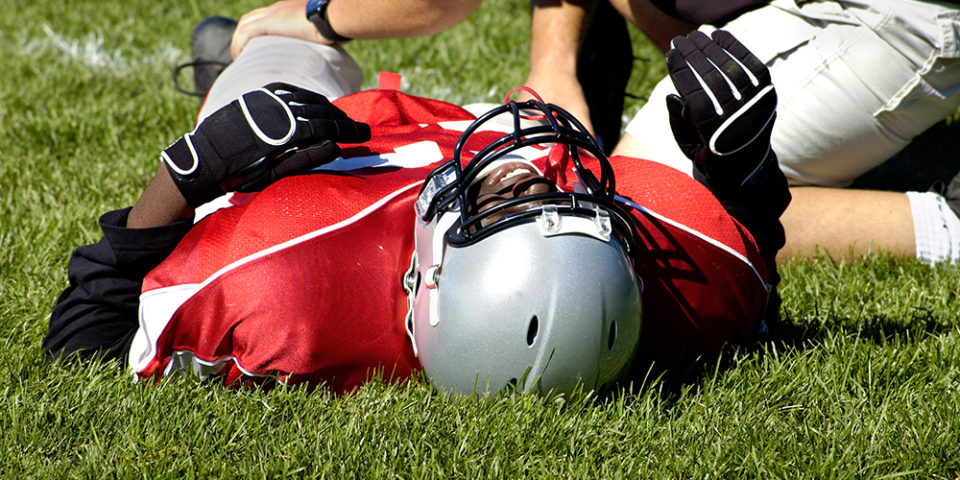Nine tips for avoiding injury on the football field
Football has one of the highest injury rates among high school and college athletes. Not only is this because of the high speed and physical nature of the sport, but also because of the time of year and outdoor practicing environment. Fortunately, there are things you can do to reduce your risk of injury and complications. Frank Noojin, MD, shared some recommendations to help you stay in the game.
- Get a good preseason physical exam. By getting a physical before the season starts, problems such as high blood pressure, asthma, rare heart conditions, scoliosis and diabetes could be diagnosed and managed throughout the season. While the preparticipation exams provided by schools are helpful, they are only screening exams and are not intended to substitute an annual physical examination by a primary care provider. Get your physical and stay ahead of the game.
- Maintain fitness throughout the year. Do not arrive for the first day of practice in poor physical condition. By working during the off season your body will be conditioned and you will be overall more prepared for your sport.
- Keep your athletic trainer on speed dial. About 75% of high schools in South Carolina have a certified athletic trainer affiliated with their football programs. Feel free to contact them if your child hurts, doesn’t feel well, experiences chest tightness or unusual shortness of breath with exercise, or has any other medical problems such as asthma or diabetes that may need ongoing medical supervision.
- Hydration is critical. Your body is like a car engine, and the type of fuel you put into it will affect performance. Drinks such as sodas, energy drinks, teas, lemonades and some sport recovery drinks are sometimes bad for maintaining hydration. In most cases, water is the best form of hydration. Be sure to drink up before, during and after practice. Processed and salty foods such as fast food and pizza may decrease your hydration and affect performance.
- Stretch and warm up. A brief warm-up run followed by stretching prepares the body for the explosive muscle contractions encountered daily through sports. By stretching and warming up, you maintain muscle balance and flexibility, which reduces injury.
- Wear comfortable shoes. Some athletes have flatfoot conditions or other factors that put them at risk for stress fractures, plantar fasciitis, Achilles tendonitis or inflammatory knee pain. There are no right shoes for everyone – cushion and comfort are the keys. A well-balanced arch with good cushion is important. Orthotics and arch supports are helpful in some cases. Foot and ankle specialists, as well as orthotists who specialize in custom arch supports and shoe wear, may be helpful.
- Take a day off. Even a young body needs recovery time. One day off each week of the season with no lifting, running or competing allows muscles and joints to recover from the physical activity of the week and prevent overuse injuries.
- Forget about the saying, “no pain, no gain.” You have to be tough for some sports. However, there is a fine line between pushing yourself and injuring yourself. Experiencing discomfort while improving fitness is normal, but sharp muscle and joint pains are signals the body sends to convey something is wrong. Coaches and athletic trainers need and want to know if you are experiencing pain. If identified and treated promptly, many painful conditions can be corrected and full sports participation resumed.
- Play one sport at a time. One sport season can take quite a toll on the body, so when you add another, bad things can happen. Stay focused on the current sport season and worry about the next one when the time comes.
Dr. Noojin said following these tips can maximize your chances of having a rewarding and healthy football season. “In order to win the game, you have to stay in the game. And to stay in the game, you have to stay away from injuries,” he said. “Have fun, play smart and stay in the game!”
Find an orthopedic specialist you trust
Find a provider who’s right for you by viewing their online profiles, star ratings and reviews.
Find an Orthopedic Doctor

